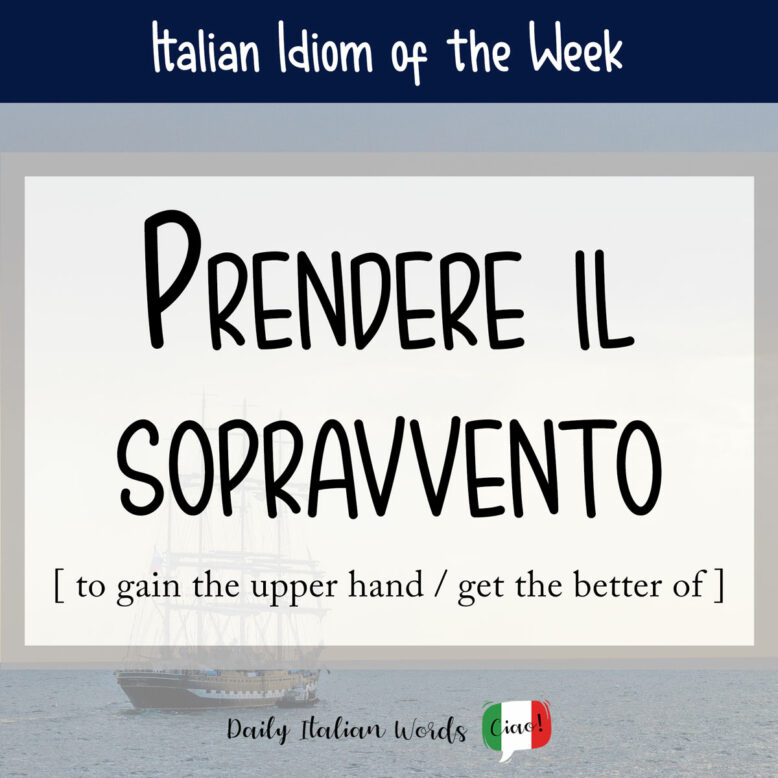If you’re facing the wind or standing on the side of something that is exposed to the wind, you are described as being “windward” in English – for example, the windward side of a boat.
In Italian, this concept is translated as sopravvento (sopra “above” + vento “wind”), which is also featured in a common idiom: prendere il sopravvento, meaning, quite literally, “to take the windward.”
prendere il sopravvento
to gain the upper hand / to get the better of

Prendere il sopravvento is how you would say to gain the upper hand or to get the better of someone. In both languages, this phrase is used to describe a situation where someone or something starts to dominate or take control over a situation.
Durante il colloquio, la paura ha preso il sopravvento e non riuscivo più ad esprimermi chiaramente.
During the job interview, fear started to get the better of me and I could no longer speak clearly.
As you might have already guessed, the idiom originates from nautical terminology. The windward side was (and still is) strategically important because it has the advantage of being upwind, allowing a vessel to better control its movements against enemy ships.
Over time, the phrase evolved from its literal maritime usage to a figurative one. Just as a ship that takes the windward side has an advantage over its surroundings or enemies, a person or force that prende il sopravvento prevails in a given circumstance.
You can also expect to encounter the related expressions avere il sopravvento (“to have the windward”) and mantenere il sopravvento (“to maintain the windward”), which mean to have the upper hand and to keep the upper hand respectively.
Note: The word can also be written with one “v” – sopravento – which is correct when referring to its maritime or wind-related definitions. However, when it means “upper hand”, it is always written with a double “v.”

Heather Broster is a graduate with honours in linguistics from the University of Western Ontario. She is an aspiring polyglot, proficient in English and Italian, as well as Japanese, Welsh, and French to varying degrees of fluency. Originally from Toronto, Heather has resided in various countries, notably Italy for a period of six years. Her primary focus lies in the fields of language acquisition, education, and bilingual instruction.


